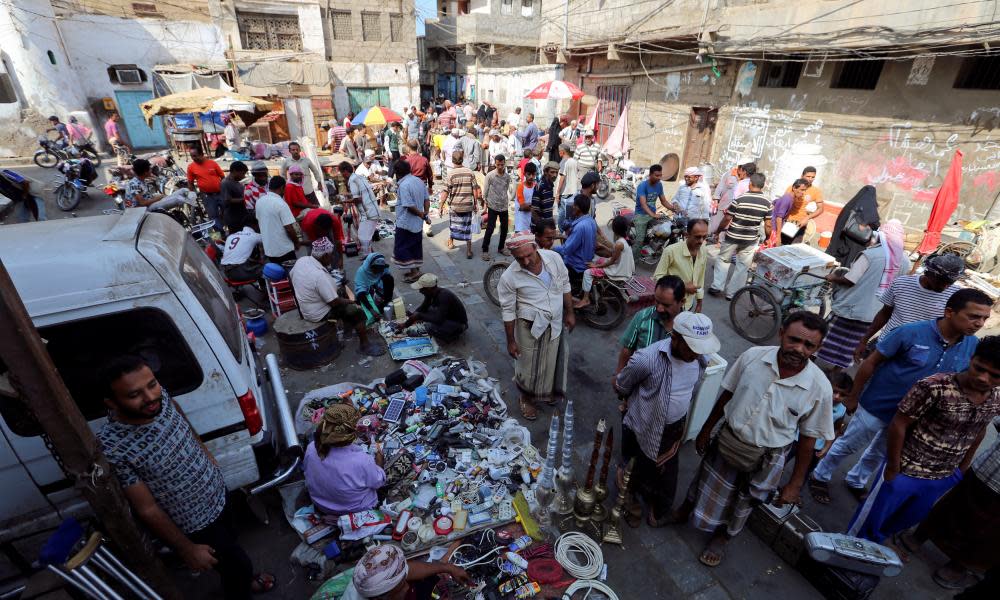Hodeidah residents dare to hope as first day of ceasefire holds

Residents trapped in Hodeidah were daring to hope on Tuesday that the misery facing the besieged Yemeni city was abating, after the first day of a UN-brokered ceasefire appeared to hold.
Both Houthi rebels in control of the city and forces loyal to Yemen’s exiled government agreed to a cessation of hostilities at midnight on Monday night.
Residents said sporadic gunfire punctured the truce but there has been no movement on the east and southern fronts in the battle for the city – a marked improvement after six weeks of intense fighting for Hodeidah’s vital port, Yemen’s main aid lifeline.
“I could only sleep two hours last night because I was so alert and kept watching for any signs of breaches of the ceasefire,” said resident Baseem al Janani.
“The first day has been good. It is quiet. God willing it will hold.”
Aid worker Salem Jaffer Baobaid said his colleagues had been able to deliver blankets and food supplies unhindered and at least one market had opened on Tuesday.
Hodeidah has faced the worst violence it has seen in Yemen’s almost four-year war since the Saudi and Emirati-backed coalition fighting on behalf of Yemen’s exiled government launched Operation Golden Victory to retake the city last month.
Despite the coalition’s airpower, as has been the case in much of Yemen’s war, the battle has quickly descended into a stalemate.
The ensuing street fighting has caused hundreds of civilian deaths. While exact figures are impossible to come by, conflict tracker the Armed Conflict Location and Event Data Project estimates 3,000 people were killed across Yemen in November, the majority in Hodeidah.
Aid agencies have warned that any damage to the city’s port facilities is likely to tip the country – where three quarters of the 28 million population are already dependent on aid to survive – into full-blown famine.
The ceasefire was agreed after hastily convened UN-sponsored talks between the warring parties in Sweden last week, which marked the first successful Yemen peace talks since 2016.
Agreements were reached on prisoner swaps and deconfliction measures for Hodeidah but observers have warned that several issues must be clarified if the deal is to hold until the next round of talks, scheduled for late January.
Hodeidah is seen by many as a litmus test for the other ambitious measures agreed in Sweden such as the implementation of humanitarian corridors throughout the country and the presence of UN peacekeeping forces.
Stumbling blocks remain for Hodeidah: as a goodwill measure the Houthis reportedly agreed to hand over maps of the city showing the location of thousands of mines, IEDs, and booby traps laid to slow the progress of coalition forces.
The rebels have so far failed to produce the documents, a source close to the talks said.
“The measures for Hodeidah agreed in Sweden are a significant breakthrough,” a UN official told the Guardian.
“There should be a lot of changes in Hodeidah in the next few weeks. Both parties showed serious commitment to putting Yemen back on a path to peace and we are optimistic about the ceasefire holding.”
A small UN monitoring mission is due to deploy to the country by Wednesday.

 Yahoo News
Yahoo News 
